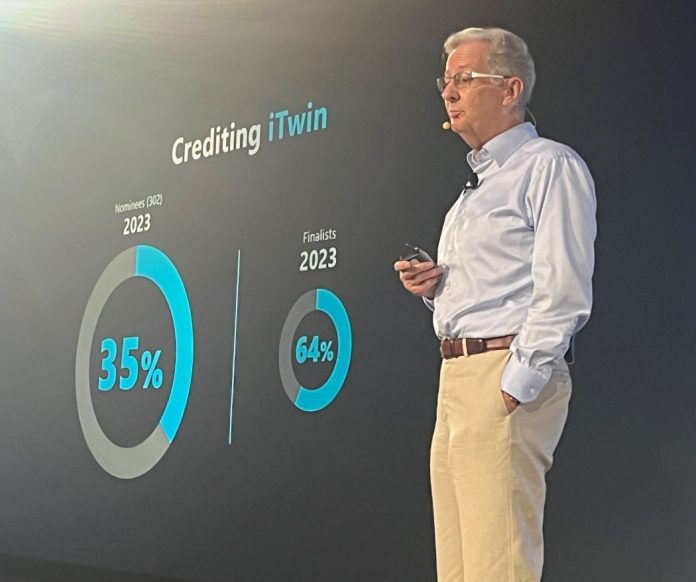
Speaking at its Year in Infrastructure event, Bentley Systems CEO Greg Bentley said that infrastructure organisations are overcoming the engineering resource capacity gap through infrastructure intelligence strategies.
Against the background of an intensifying resource and capacity gap – with one unfilled position for every ten engineers employed – the need is greater than ever to broaden and multiply the impact of digitalisation. Addressing attendees at its annual Year in Infrastructure event in Singapore and citing users’ projects, Bentley CEO Greg Bentley highlighted how infrastructure organisations are overcoming that engineering resource capacity gap through effective infrastructure intelligence strategies.
Underling the claim, Bentley reported that when asked to quantify the engineering hours saved through digital advancements, Bentley’s Going Digital Awards finalists in 2023 reported significant median savings of 18%. “The benefits of going digital should be widespread and we need to bring the rest up with the best,” said Bentley, who also highlighted that reality modelling and 4D construction modelling were now progressively becoming construction industry norms.
Bentley’s CEO also said that the capacity gap was having a direct impact on the desire of world governments to deliver more sustainable and quality infrastructure. Digital innovation, especially digital twins, can improve the situation, he said, by reducing maintenance of infrastructure. Investment in this area now will save money later and also help to run infrastructure more efficiently, said Bentley.
Increasingly, new unique digital components being developed and used. Digital twins are serving as building blocks for infrastructure intelligence and AI is making a difference too. Bentley Systems estimates that the company’s engineering users accumulate at least 100 million new unique digital components per month within their respective ProjectWise environments, teeing up potential infrastructure intelligence benefits across construction, operations and maintenance.
“We are committed to helping users derive ever more value from engineering data and safeguarding that data,” said Bentley, who also highlighted many infrastructure intelligence strategies that organisations are using to further compound the value of their data. These included reusing digital components, integrating subsurface modelling and incorporating, into evergreen digital twins, operational data from IoT sensors, drones and even crowdsourcing.
Singapore has been groundbreaking in its use of infrastructure intelligence, with digital twins extensively used to optimise decision-making and operations. The Singapore Land Authority (SLA) is a leader in digital twin adoption and speaking at the Year in Infrastructure event, its director of survey and geomatics, Dr Victor Khoo, discussed Singapore’s national digital twin journey.
He highlighted how a 0.225-meter accurate nationwide reality mesh from aerial surveying is incorporated with extensive inputs from other mapping datasets to produce a complete digital twin of the city, which is then shared with multiple agencies and research institutes to support Singapore’s sustainability initiatives. Clearly, the concept of infrastructure intelligence is making a positive difference to the city state and, increasingly, around the world as well.
With the ACEC Research Institute reporting earlier this year that engineering firms are facing a median project backlog of one year, while 10% of full-time equivalent positions at engineering firms remain vacant, the effective use of infrastructure intelligence could make a significant difference to resource and capacity optimisation across the whole industry.
















